
Pfizer, BioNtech say flu-COVID shot generates immune response
Pfizer and German partner BioNTech said on Thursday that their vaccine to prevent flu and COVID-19 generated a
1970-01-01 08:00
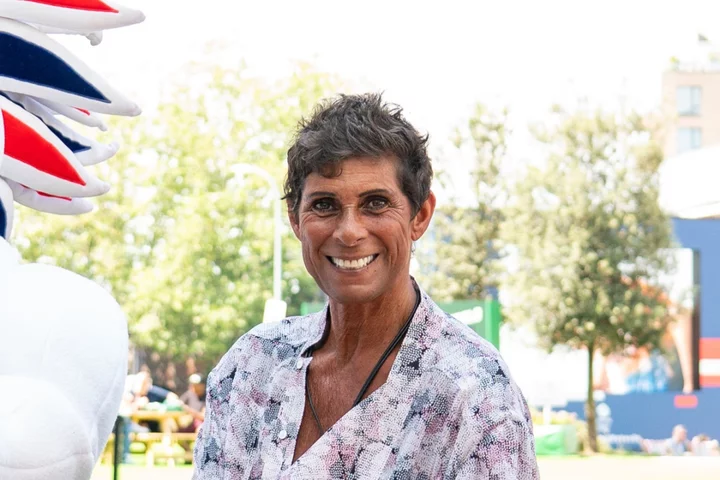
Fatima Whitbread supporting new fostering campaign, as research finds ‘misconceptions put people off’
Misconceptions including being single or too old are said to be putting people off fostering at a time of dire need for more carers, as Olympian Fatima Whitbread and poet Lemn Sissay front a new recruitment campaign. Radio presenter Pandora Christie has also joined efforts to get more people to consider fostering, as the trio – who all had experience living in care as children – shared photographs of their younger selves in support of the campaign. The National Fostering Group (NFG), which describes itself as the largest network of independent fostering agencies in the UK, said its research had shown thousands of carers are needed across Great Britain. Sissay, who has previously detailed his experiences in the British care system, said fostering or adoption is “the greatest thing a human being can do for another”, while Whitbread, who grew up in children’s homes, said it is “a unique chance to make a real difference to a child’s life”. The NFG described the care system as being “at a critical point” and said information it had received from 128 local authority fostering agencies in England, Scotland and Wales suggested almost two thirds of those had seen a rise in young people going into care in the last 12 months and an estimated 10,500 foster carers are now “urgently needed across the country”. But its polling of 2,000 adults suggested less than a fifth (14%)of people would consider fostering – a figure the NFG said could be higher if certain misconceptions were not held. More than a third (34%) of people felt they were too old to foster – with most of those who said this in the 65-plus age bracket, but 18% aged between 55 and 64 and 11% aged 45 to 54, the NFG said. Other reasons included already having their own children (13%), being single (13%), working (11%) and being disabled (9%), it added. Steve Christie, chief executive of the NFG said: “Many people perceive there to be barriers to becoming a foster carer that simply aren’t true. “We will consider people regardless of age, marital status, gender, sexuality, disability or employment status. “Anyone who has room in their home and their heart could be a foster carer, and most of our foster carers say that fostering is the best thing they have ever done.” Backing the campaign, Olympic javelin champion Whitbread said: “Foster carers offer children and young people a safe, loving and nurturing home when they can’t live with their birth families. This means they have a unique chance to make a real difference to a child’s life.” Heart radio presenter Christie, who went into foster care aged nine, said: “Foster parents are fundamental in creating a safe home environment and support system for children and young people who find themselves needing care. “The amount of futures they help to change and the difference foster parents can make to a child’s life is indescribable.” Sissay, who wrote about his time in care in his autobiography, My Name Is Why, said: “A child will test you emotionally, spiritually, financially, throughout your life, so to foster or adopt a child is the greatest thing a human being can do for another.” For more information on fostering, visit www.nfa.co.uk. Read More 5 key coat trends to complete your autumn/winter wardrobe 12 ways to weave some woodland wonder into your home Hibernation mode: 5 small self-care adjustments to make before the clocks change 13 possible cancer symptoms you should get checked out Neglecting women’s health at work could cost UK economy £20.2bn a year – analysis Nearly three-quarters of mothers feel invisible, study suggests
1970-01-01 08:00
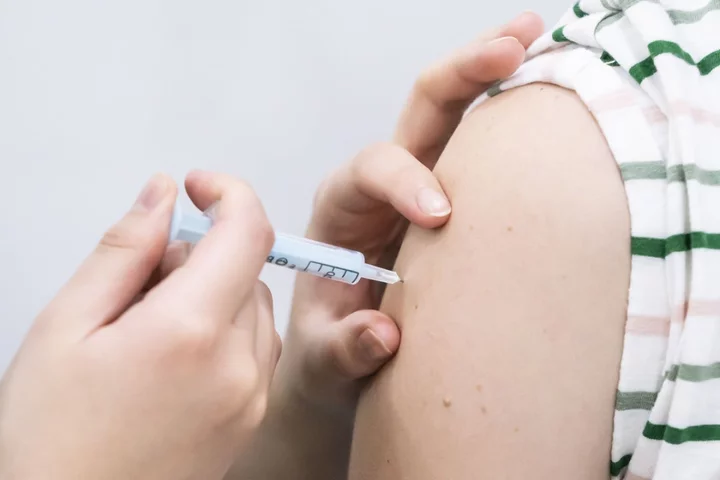
Shingles symptoms, what causes it and how to treat the virus
Shingles can be a very painful experience that affects around one in four adults in their lifetime. The infection, also known as herpes zoster, is caused by the varicella-zoster virus which also causes chickenpox. The virus is extremely common, with more than 90 per cent of the world’s population having it. It is usually contracted when people get chickenpox as children, but the virus does not go away, instead, it will lay dormant in the body’s nervous system for years. For about a third of people who get the virus, it will reactivate some years later and cause shingles. Here is everything you need to know about the symptoms of shingles and how to treat it: What are the symptoms? A person who gets shingles will experience a painful rash that can occur anywhere on the body. Early signs of shingles could be a tingling or painful feeling in an area of skin, a headache or feeling generally unwell. According to the NHS, the rash usually looks like “a single stripe of blisters that wraps around the left side or right side of your torso”. They appear as blotches on the skin that become itchy blisters, which can break and ooze fluid. The rash can be red, but this can be harder to see on brown or black skin. The rash can also appear on your face, eyes and genitals. If it appears around your eyes, it can affect your sight or hearing and make it hard to move one side of your face. According to the Mayo Clinic, if left untreated, the infection can lead to permanent eye damage. After a few days, the blisters will dry out and become scabs. If a rash appears on both the left and right side of the body, it is unlikely to be shingles. How is it treated? Shingles can take up to four weeks to heal, but can have more severe consequences in older people above the age of 50. If the symptoms are not serious, patients can take paracetamol to ease the pain and use a cool compress on the rash several times a day to soothe it. It is also recommended that you keep the area with the rash clean and dry to reduce the risk of infection and wear loose-fitting clothing. But there are some situations in which it is recommended you contact your GP or call 111. Due to the heightened risk in older people, you should seek help if you are aged 50 or older. People with a weakened immune system should also contact the health service, as well as those who have a rash that is widespread and painful, or has appeared near an eye. Are shingles contagious? Shingles are not contagious and you cannot spread them. However, if you come into contact with someone who has not had chickenpox and has not been vaccinated against chickenpox, they could catch chickenpox from you. The NHS recommends you avoid being around pregnant people who have not had chickenpox before, people with a weakened immune system, and babies that are less than a month old. Is there a vaccine against shingles? Yes, but it is only available on the NHS to people in their 70s. Shingles can be fatal for around one in 1,000 over-70s who develop it. The vaccine injection only needs to be given once. However, some people who cannot have the routine vaccine for health reasons will need two doses. Getting the vaccine will reduce your risk of getting shingles, and if you do get it, your symptoms may be milder and the illness shorter. If you already had shingles, you can still get the vaccine to protect yourself against developing it again. You may have to wait up to one year after you have recovered from the illness before you can get the vaccine. Read More When do the clocks go back in the UK this year? Hibernation mode: 5 small self-care adjustments to make before the clocks change Want to be a useful man? Arnold Schwarzenegger is here to tell you how When do the clocks go back in the UK this year? Hibernation mode: 5 small self-care adjustments to make before the clocks change Want to be a useful man? Arnold Schwarzenegger is here to tell you how
1970-01-01 08:00

Shingles explained as Holly Willoughby takes time off from This Morning
Holly Willoughby has announced that she “may not” be c-hosting ITV’s This Morning in the coming week due to contracting shingles. The 42-year-old TV presenter wrote on her Instagram Story on Sunday (16 April): “Hi, just to let you know, I may be away for the rest of the week as I have shingles.” “I’ll be back as soon as I’m better. Huge love,” she added. Shingles can be a very painful experience that affects around one in four adults in their lifetime. The infection, also known as herpes zoster, is caused by the varicella-zoster virus which also causes chickenpox. The virus is extremely common, with more than 90 per cent of the world’s population having it. It is usually contracted when people get chickenpox as children, but the virus does not go away, instead, it will lay dormant in the body’s nervous system for years. For about a third of people who get the virus, it will reactivate some years later and cause shingles. Here is everything you need to know about the symptoms of shingles and how to treat it: What are the symptoms? A person who gets shingles will experience a painful rash that can occur anywhere on the body. Early signs of shingles could be a tingling or painful feeling in an area of skin, a headache or feeling generally unwell. According to the NHS, the rash usually looks like “a single stripe of blisters that wraps around the left side or right side of your torso”. They appear as blotches on the skin that become itchy blisters, which can break and ooze fluid. The rash can be red, but this can be harder to see on brown or black skin. The rash can also appear on your face, eyes and genitals. If it appears around your eyes, it can affect your sight or hearing and make it hard to move one side of your face. According to the Mayo Clinic, if left untreated, the infection can lead to permanent eye damage. After a few days, the blisters will dry out and become scabs. If a rash appears on both the left and right side of the body, it is unlikely to be shingles. How is it treated? Shingles can take up to four weeks to heal, but can have more severe consequences in older people above the age of 50. If the symptoms are not serious, patients can take paracetamol to ease the pain and use a cool compress on the rash several times a day to soothe it. It is also recommended that you keep the area with the rash clean and dry to reduce the risk of infection and wear loose-fitting clothing. But there are some situations in which it is recommended you contact your GP or call 111. Due to the heightened risk in older people, you should seek help if you are aged 50 or older. People with a weakened immune system should also contact the health service, as well as those who have a rash that is widespread and painful, or has appeared near an eye. Are shingles contagious? Shingles are not contagious and you cannot spread them. However, if you come into contact with someone who has not had chickenpox and has not been vaccinated against chickenpox, they could catch chickenpox from you. The NHS recommends you avoid being around pregnant people who have not had chickenpox before, people with a weakened immune system, and babies that are less than a month old. Is there a vaccine against shingles? Yes, but it is only available on the NHS to people in their 70s. Shingles can be fatal for around one in 1,000 over-70s who develop it. The vaccine injection only needs to be given once. However, some people who cannot have the routine vaccine for health reasons will need two doses. Getting the vaccine will reduce your risk of getting shingles, and if you do get it, your symptoms may be milder and the illness shorter. If you already had shingles, you can still get the vaccine to protect yourself against developing it again. You may have to wait up to one year after you have recovered from the illness before you can get the vaccine. Read More Five signs of sepsis you need to know and act on immediately EuroMillions winner burned through £40m by spending £100K a week Tech entrepreneur, 45, spends $2m a year on reverse ageing to achieve body of an 18 year old: ‘Horrifying’ Shingles symptoms, what causes it and how to treat the virus When do the clocks go back in the UK this year? Hibernation mode: 5 small self-care adjustments to make before the clocks change
1970-01-01 08:00
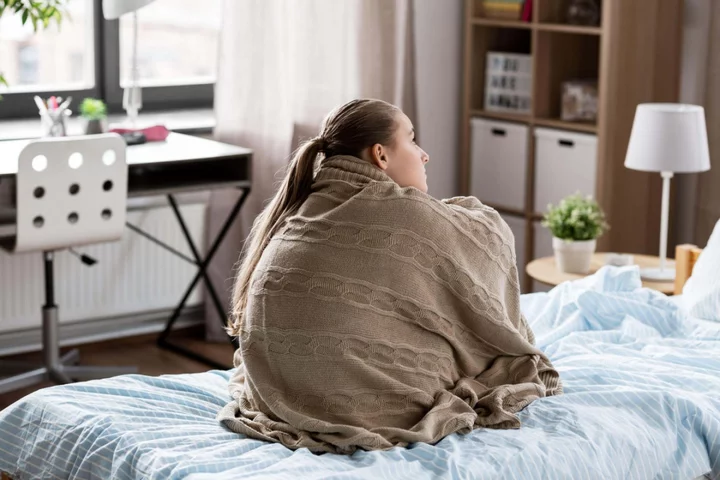
Hibernation mode: 5 small self-care adjustments to make before the clocks change
With the clocks going back on October 29, longer, darker nights are imminent – and many of us may be nervous about how this could impact our wellbeing. But, there are some little acts of self-care that could help. Here’s how to switch up your self-care routine as the clocks change… 1. Spend more time outdoorsIt may be getting colder, but time outside could be the best thing for you to protect your emotional welfare as the shorter days draw in. “When the clocks change, the internal body clock, our circadian rhythm, has to reset and it can become out of sync with our standard night-and-day cycle. It can take a few days for our body to adjust to the new sleep pattern, which can affect our hormones and temperature,” explains Dr Harriet Leyland, clinical advisor at myGP. To mitigate this, “spend more time outdoors”, she suggests. “Sunlight can alleviate drowsiness as it limits the release of melatonin, a hormone that induces tiredness and gets you ready for bed.” Jodie Relf, a Pilates instructor and registered dietitian from myOva, suggests making this part of your daytime routine. “[Getting outside] can be more challenging once the clocks have changed, it’s often dark for many of us both going to and returning from work. Therefore trying to get outside during the day, at lunchtime, perhaps, can be beneficial in the winter months,” says Relf. 2. Think about your body temperatureYou may be feeling the cold outside, but we don’t want to overheat indoors – especially at bedtime. “We sleep better in a cooler environment, with the ideal bedroom temperature reported to be a cool 16-17C,” says Dr Guy Meadows, co-founder and clinical lead at Sleep School. “For best sleep, switch off the central heating and swap your lightweight summer duvet for a higher tog winter one. Alternatively, use a combination of sheets, quilts and blankets, as this allows you to more easily regulate your temperature at night for better sleep.” 3. Prepare for good sleepIf you always struggle with sleep when the clocks change, give yourself a helping hand by being prepared. “Gradually adjust your bedtime in the few days leading up to the clocks changing – go to bed 15-30 minutes earlier each night for a few nights in the lead-up,” suggests Meadows, explaining this will help with the body-clock switch. 4. Eat a colourful plate While you may just want stodgy comfort food to warm the chillier evenings, eating well is one of the best ways to support your overall wellbeing – aiding energy, immunity, mood and sleep. “Eat a balanced diet with a colourful variety of plant foods including fruits, vegetables and whole grains, as well as lean protein,” explains Dana Moinian, a psychotherapist at The Soke. “Avoid heavy or high-sugar meals close to bedtime.” 5. See friends While social plans may have wound down compared with summer, hibernating and distancing yourself too much could be damaging to your wellbeing. “Spend time with friends and loved ones,” says Moinian. “Socialising naturally boosts your mood and reduces stress levels.” So get the diary out and plan in some fun outings and get-togethers! Read More 13 possible cancer symptoms you should get checked out Neglecting women’s health at work could cost UK economy £20.2bn a year – analysis Nearly three-quarters of mothers feel invisible, study suggests The best ways to work-out in 22 minutes – as study finds this is magic number for offsetting ‘negative impact of sitting’ What crops will we be growing in the future, as climate change alters the landscape? As Rebecca Adlington shares heart-breaking miscarriage news: How to support others experiencing baby loss
1970-01-01 08:00

Kylie Jenner says she and ex Travis Scott are doing ‘the best job that they can do’ as co-parents
Kylie Jenner has shared a rare comment about co-parenting with her ex, Travis Scott. The 26-year-old model spoke candidly about her and Scott’s children – Stormi, five, and Aire, one – during an interview with The Wall Street Journal Magazine, published on 24 October. When asked about co-parenting with the rapper, she said: “It’s going…. I think we’re doing the best job that we can do.” Scott and Jenner first started dating in 2017 and had an off-and-on relationship until January 2023. At the time, a source claimed to Us Weekly that the pair were “off again,” after rekindling their romance for a second time in February 2020. However, the publication also claimed that the former couple was still on good terms, adding: “This has happened so many times before, they’re known to be on-again, off-again, but always remain friends and great co-parents.” Since their split, Scott has shown his support for his ex. In April, he took to the comments of one of her Instagram posts and wrote: “A beauty.” However, fans came up with a different theory in July, with claims that a reference in his song, MELTDOWN”, was about Jenner’s new relationship with Timothée Chalamet, who she’s been romantically linked to since May 2023. At the end of the song’s second verse, Scott raps the lines: “Chocolate AP and chocolate the Vs got the/ Willy Wonka factory (Vs)/ Burn a athlete like it’s calories find another flame/ hot as me, b****.” The mention of Willy Wonka is seemingly in reference to Chalamet’s leading role as Roald Dahl’s famous fictional chocolatier in the forthcoming musical feature film, Wonka. During her interview with WSJ Magazine, the reality star also spoke candidly about motherhood, and how her perspective on beauty standards has changed while raising Stormi. She also described some of the lessons she’s teaching her daughter. “My daughter has totally taught me a lot more about myself, and seeing myself in her has changed everything. I’ve had so much growth and am just embracing natural beauty,” she said. “I’m teaching her about mistakes that I made and making sure she knows she’s just perfect exactly how she is.” The Kardashians star specified that some mistakes she’s made over the years have included getting “surgery when [she] was younger”. She added that while she’s never gotten work done on her face, she still decided to have a breast augmentation, which she’s previously been open about. “But just even getting my breasts done when I was 19 and getting pregnant soon after, not obviously planning to be pregnant at 19,” she said. “And I was never insecure about myself. I actually was always super confident and loved my body. I was just having fun. I was influenced by amazing boobs and was like, that’s what I wanted to do, and had fun with it.” According to the Kylie Beauty founder, her experiences can be lessons for her children. “I probably just should have waited until I maybe had kids or let my body just develop,” she said about the procedure, before adding that motherhood is about “teaching our kids to do better than us, be better versions of who we were”. During the interview, she also spoke about legally changing her son’s name from Wolf Jacques to Aire in 2023, one year after he was born. “That was the hardest thing that I’ve ever done in my life,” she said. “I’m still like: ‘Did I make the right decision?’” She also explained how difficult it was for her to come up with her son’s name shortly after giving birth. “The postpartum hit, and the hormones, and I couldn’t even make a decision or think straight,” she added. “And it just destroyed me. I could not name him. And I was like: ‘I feel like a failure. I don’t have a name for my son.’ So it took me a while. And then the longer I waited, the harder it was to name him.” Read More Timothée Chalamet compares Kylie Jenner romance to Harry-Meghan South Park episode Gym maths: How to optimise 22 minutes exercise a day according to fitness experts Chris Pratt sparks relatable parenting debate about childhood trophies Gym maths: How to optimise 22 minutes exercise a day according to fitness experts Chris Pratt sparks relatable parenting debate about childhood trophies Jasmine Harman tearfully recalls mother’s struggles with hoarding
1970-01-01 08:00

Gaza's hospitals treating emergency cases only as fuel runs low
A third of hospitals have already shut, the UN says, amid fears of fuel running out within hours.
1970-01-01 08:00

Israelis and Palestinians fear worst to come after Gaza violence
The grim old routines that had settled on this conflict have been swept away, says Jeremy Bowen.
1970-01-01 08:00

Chris Pratt sparks debate over when parents should throw away childhood trophies
Chris Pratt has asked the question almost every parent wonders when raising their children: Is it okay to throw away childhood trophies? The Guardians of the Galaxy star, 44, recently posed the question to his social media followers after he and his wife, Katherine Schwarzenegger, came across all her childhood trophies kept by her parents, Arnold Schwarzenegger and Maria Shriver. Pratt took to Instagram on 24 October, where he shared several photos of the children’s book author, 33, holding up some of her many childhood trophies - including “Problem Solving Super Star 4th Grade 2000” and “most improved two-year-old in swim class”. In the lengthy caption, the Parks and Recreation alum explained that Schwarzenegger’s mother had been “storing special items” from her daughter’s childhood for years, which he noted was “so very thoughtful”. “To see my darling wife beaming with sentiment as she opens these crates of meticulously organised keepsakes, remembering her cherished youth, makes me grateful for the efforts her folks put into archiving,” Pratt wrote. “I suppose that’s the payoff for the work it took to store this stuff, the smile on her face as she relives moments of her youth. To pray one day that your children will look back on their childhood with glee is a blessing. It is the hope of parenthood.” However, as the couple - who have been married since 2019 - perused Schwarzenegger’s prized possessions, it got him thinking about how long he’s supposed to hold onto his own children’s mementos. Pratt shares an 11-year-old son, Jack, with ex-wife Anna Faris and two daughters - Lyla, three, and Eloise, one - with Schwarzenegger. “Real talk,” Pratt said. “Once your kid goes through the stuff, is it okay to toss? I mean… do we need the ‘I was on a sports team trophy?’ Can they be donated? Repurposed? How many do we gotta keep? Not all of them right? Any of them? Is there a grading scale? Like, did you win? Were you a champion? Is there a specific sentimental connection? Help me out here. Do they go back in storage?” His relatable question prompted many parents in the comments section to sound off on how long they’ve kept their children’s trophies. Some users admitted that they wished their own parents had held onto their accolades for so long. “Wait this is amazing. I’ll be saving my children’s stuff for sure,” one person commented. “Well, I have no keepsakes from childhood and I wish I did. So there is that,” another said. “I had my boys go through their boxes and they kept what was special to them. I tossed the rest,” a third fan wrote. “FREEDOM!!!” Others revealed what they did to cherish their children’s precious memories while still saving some room in the storage bin. “I donated all my old trophies to an organisation that removes the labels and repurposes them for fun awards,” wrote one fan. “For those sentimental ones, we peeled off the engraved part and kept it in a plastic pocket notebook and tossed the trophy part,” said someone else. Another user suggested: “Give them out as prizes when your friends come over for game night.” Meanwhile, Schwarzenegger joked that her husband was simply jealous she’s acquired so many trophies over the years. “Feels like someone is a litttlllee bit jealous of my natural athleticism from birth and ability to solve problems,” she commented. Pratt’s mother-in-law also weighed in on the debate, as she applauded herself for saving almost every prized possession for her four children. “Omg I’m so happy,” Shriver commented. “Here’s to story trophies and school work and dresses and party outfits I feel vindicated.” The Jurassic World star was married to Faris in 2009. The former couple announced their split in August 2017 and finalised their divorce in October 2018, four months after he began dating Schwarzenegger. He proposed to the author in January 2019 and they were married in June that year. Pratt has often shared glimpses into his life as a father of three on social media. Most recently, he went viral when he posted a photo of the glittery makeover he received from his two daughters. He shared two photos of his new look, including one where his forehead was bedazzled with teal, purple, and silver gems. The other photo showed Pratt with pearl-like gems dotting his face, as well as a teal manicure. “All I have to say is… Jack would never do this to me,” he captioned the post. Read More Gym maths: How to optimise 22 minutes exercise a day according to fitness experts Jasmine Harman tearfully recalls mother’s struggles with hoarding Neglecting women’s health at work could cost UK economy £20.2bn a year – analysis Gym maths: How to optimise 22 minutes exercise a day according to fitness experts Jasmine Harman tearfully recalls mother’s struggles with hoarding Neglecting women’s health at work could cost UK economy £20.2bn a year – analysis
1970-01-01 08:00
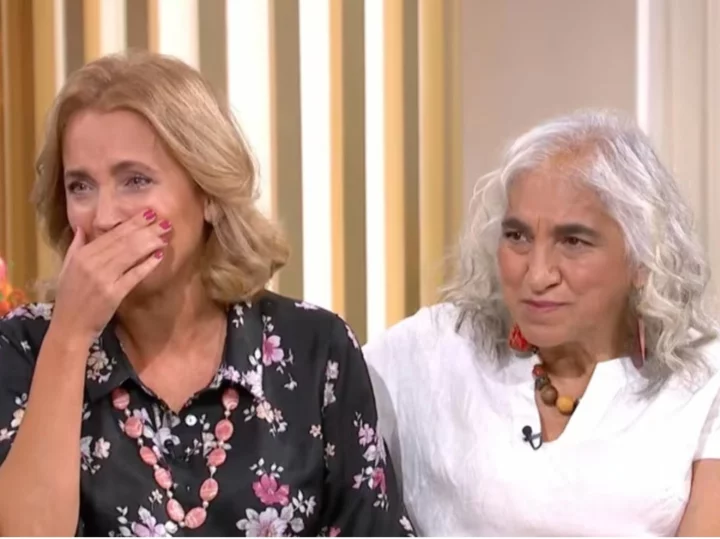
Jasmine Harman tearfully recalls mother’s struggles with hoarding
TV presenter Jasmine Harman became emotional as she opened up about her mother’s struggles with hoarding – and how it adversely impacted their relationship for years. The host of Channel 4’s A Place in the Sun, Harman, 47, said she “refused to bring people home” and was “really, really embarrassed and ashamed” about her mum Vasoulla’s condition, on Wednesday (25 October) during an appearance on This Morning. “In fact, when I started working in television, it was my biggest fear that someone would find out about the way I’d grown up and the way that we lived at the time,” she told Dermot O’Leary and Allison Hammond. Reflecting on how things had changed since then, Harman teared up as she affirmed her priority is “having a loving relationship” with Vasoulla – and not “focussing on the hoarding” anymore. Addressing her mother, Harman added: “She’s helped me to become a much more compassionate person. We used to fight, didn’t we? “But now we have a relationship that’s outside [of the hoarding].” Hoarding was recognised as a mental health disorder in 2013. According to the World Health Organisation (WHO), it is characterised by “an accumulation of possessions due to excessive acquisition of, or difficulty discarding possessions, regardless of their actual value”. The Diagnostic and Statistical Manual of Mental Disorders (DSM) outlines detailed criteria that psychologists can use to diagnose hoarding, including cluttered living spaces where the room’s intended use [of cooking, sleeping, or sleeping] has become impossible. These behaviours usually appear during a person’s early life, with Vasoulla explaining it was triggered by “the trauma of loss” in her case. “We moved from Cyprus when I was about three so I left my baby things back home and started collecting trinkets in bombed-out houses that were still about in the early Sixties, after the war – trinkets that I treasured,” she explained. “Then we moved back to Cyprus for a couple of years and those things all got lost. Then we moved back to England and all my new ties got lost – so I just had lots of upheaval, lots of loss.” Vasoulla, whose father was killed in Cyprus, added: “It’s more the loss, like a bereavement. Losing your father is a big thing, moving country ...you lose everything and you get a new place to live. The trauma of loss [is] something that a lot of people have as the onset of their hoarding behaviour.” The mother-daughter duo previously opened up about how hoarding affected their lives in a 2011 BBC documentary, titled My Hoarder Mum & Me. Speaking about the “cathartic experience”, Harman on Wednesday confessed:“I genuinely had no idea how many people were affected by this.” Around three million people are reportedly impacted by the mental health condition, according to Hoarding Disorders UK. The organisation’s director Jo Cook, who joined Vasoulla and Harman on the This Morning couch, explained that hoarding is neither a lifestyle choice, nor “about poor housekeeping”. When asked about supporting loved ones who might struggle with hoarding, Cook recommended joining a support group and approaching the anxiety-based disorder with empathy. “It’s really important that that person that you’re helping, feels safe in their home with you. Because, essentially, you’re unpicking someone’s nest, so you need to make sure you’re doing it slowly and surely,” she added. If you have been affected by this article, you can contact the following organisations for support: actiononaddiction.org.uk, mind.org.uk, nhs.uk/livewell/mentalhealth, mentalhealth.org.uk. Read More Pete Davidson is on the market for a hot date - but not for him Gym math: How to optimise 22 minutes exercise a day according to fitness experts Neglecting women’s health at work could cost UK economy £20.2bn a year – analysis Gym math: How to optimise 22 minutes exercise a day according to fitness experts Neglecting women’s health at work could cost UK economy £20.2bn a year – analysis Nearly three-quarters of mothers feel invisible, study suggests
1970-01-01 08:00

Israel demands UN chief resign over Hamas attack comments
António Guterres condemned Hamas's deadly attacks but said they "did not happen in a vacuum".
1970-01-01 08:00
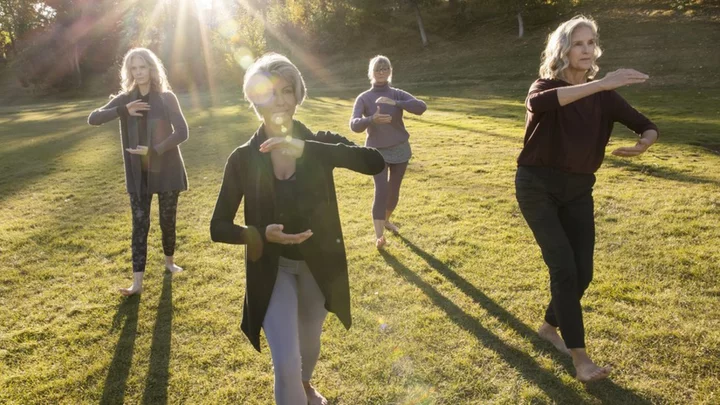
Tai chi may slow Parkinson's symptoms for years, study finds
The traditional gentle Chinese exercise showed balance and movement benefits for patients.
1970-01-01 08:00
